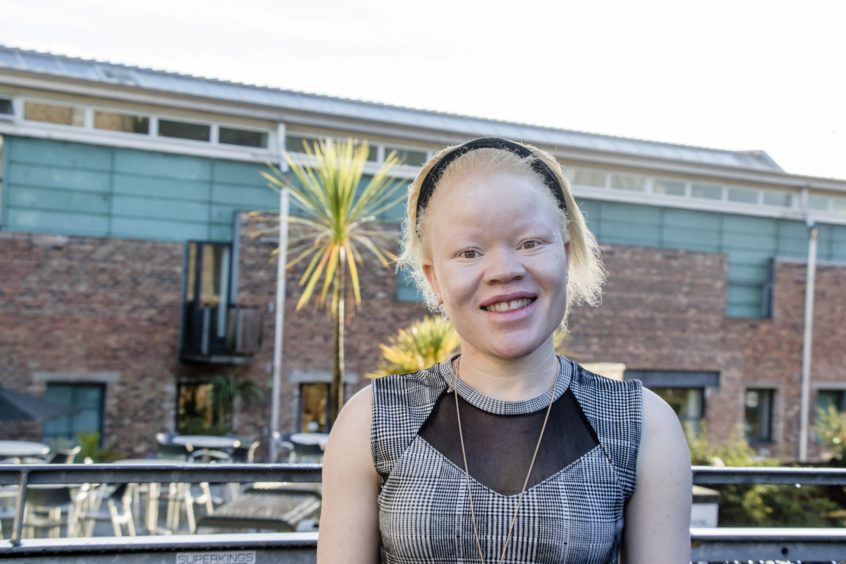A Malawian human rights campaigner who completed a fellowship at Dundee University has spoken of how she and others with albinism are “hunted like animals” in her home country.
Tumeliwa Mphepo described how people with the genetic condition are killed for their bones and body parts, which are then sold for witchcraft rituals.
Amnesty International has described the situation in Malawi as a human rights crisis, with thousands of people – particularly children – being at risk and the perpetrators going largely unpunished.
Tumeliwa said: “People like me are being hunted like animals in Malawi and other parts of Africa.
“There has been a big increase in the number of atrocities against people with albinism, with some 159 cases in Malawi in just a few years.
“This has been a problem in the background for years. We cannot be silent about this.
“This is not the fault of the government and there are people within the government trying to counter these beliefs but it is a slow process and the action is not happening quickly enough for those of us at risk.
“A lot of discrimination exists against people with albinism in education and employment meaning they tend to fall into the lowest socio-economic bracket and are the most vulnerable as a result of their poverty.”
Tumeliwa Mphepo is one of three international activists who spent a semester in Dundee as part of the Scottish Human Rights Defender Fellowship initiative.
Participants spent three months in Scotland, combining study with the chance to build relationships and share expertise with Scottish human rights and equality organisations.
>>24 Days of Christmas – Click here for special festive deals from some of our favourite local businesses
For activists like Tumeliwa, even speaking out about the issue can be dangerous, but she has waived her right to anonymity.
Her fellow activists, also spending time at Dundee University, preferred to speak out anonymously for fear of reprisals in their home country.
One of them, a lawyer targeted by authorities for his human rights work, recounted how activists often don’t sleep through the night as there is a real possibility of would-be jailors, torturers and murderers breaking down their door.
The lawyer added: “I have slept more in the past three months than I have in a very long time.
“We have all had a break from persecution in Scotland.
“We have made friendships and built solidarity with the people we have met here and I think it has also been very beneficial for the activists in Scotland to meet with us and hear about out experiences.”
The fellowship is a partnership between the Scottish Government and the university, supported by campaign groups Front Line Defenders, Amnesty International, Scottish Catholic International Aid Fund and Beyond Borders Scotland.










